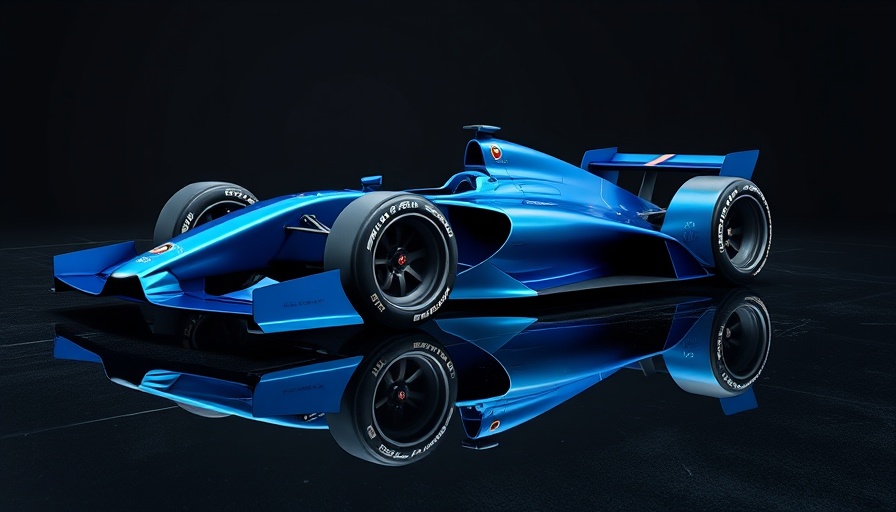
General Motors Steers into Formula 1 with Bold Ambitions
General Motors (GM) is shifting gears as it officially embraces its role in Formula 1 (F1) after receiving valuable approval from the FIA to supply power units starting in 2029. This significant step marks GM’s thrilling entrance into a futuristic realm of motorsport, signifying a commitment to both innovation and competition.
The Cadillac F1 Team: A New Era Begins
The path to this approval wasn't just paved with rubber; it encapsulated a vision that aims to enhance the F1 landscape. The GM-backed Cadillac F1 team is set to utilize Ferrari power units for its first two seasons while planning to introduce its own engines by 2029. As part of their strategy, GM is constructing a state-of-the-art facility in North Carolina, aiming for operational capability by 2026. CEO Russ O’Blenes stated, "With this approval from the FIA, we will continue to accelerate our efforts to bring an American-built F1 power unit to the grid." This ambition could inject a unique flair into a sport traditionally dominated by European powerhouses.
Future Innovations: Sustainable Fuel on the Horizon
As the motorsport world stands at the crossroads of tradition and sustainability, GM's engagement hints at exciting developments. While the 2029 season is currently slated to feature next-generation V6 turbo power units, discussions are underway about potentially introducing a naturally aspirated engine utilizing sustainable fuels as the decade rolls in. This not only aligns with the FIA's vision for a more innovative and green motorsport landscape but also sparks dialogues about how the sport can bridge the gap between high-octane racing and ecological responsibility.
Broader Impacts: Expanding F1's Global Footprint
FIA President Mohammed Ben Sulayem emphasized the importance of expanding the grid to welcome new talent and create opportunities in racing. The inclusion of GM in F1 not only signifies a diversification of manufacturers in the sport but also enhances the inclusivity factor, which appeals to a broader and more diverse fan base. As the dynamics of motorsport evolve, the impact of such expansions could reverberate beyond the racetracks, possibly altering the business models and promotional strategies of the sport moving forward.
Conclusion: Gear Up for an Exciting Future in Formula 1
With GM's entry into Formula 1, motorsport fans have much to look forward to. The introduction of American innovation will not only increase competition but may usher in a new era of technology and sustainability in racing. As we anticipate the developments leading to 2029, it’s clear that this move will have long-lasting effects on the sport itself and the dynamics of global automotive competition.
 Add Row
Add Row  Add
Add 

 Add Row
Add Row  Add Element
Add Element 




Write A Comment